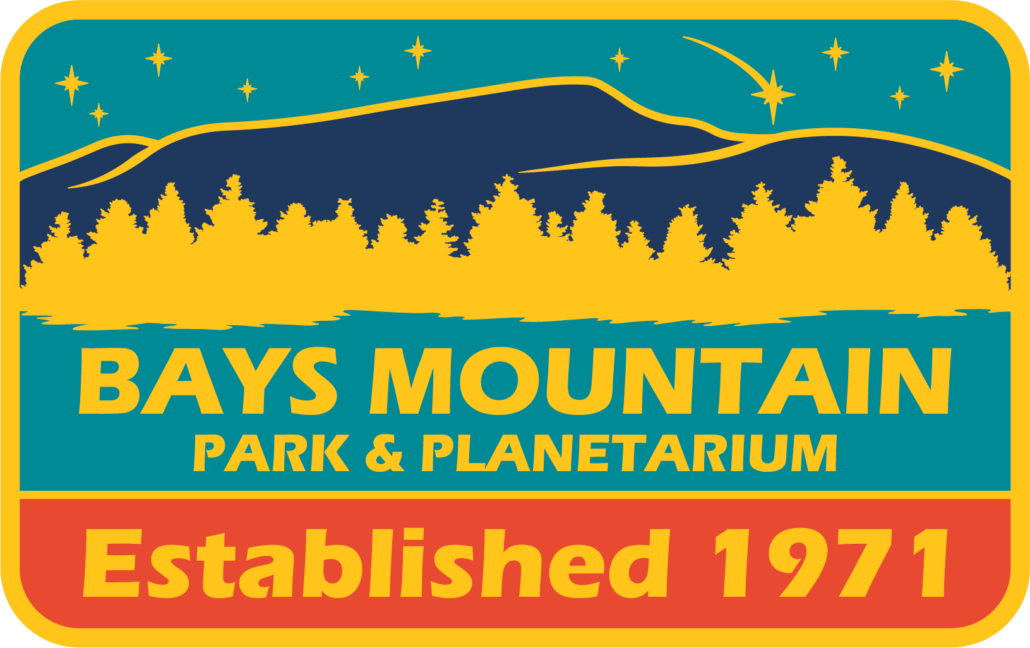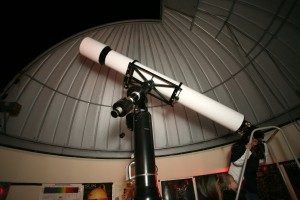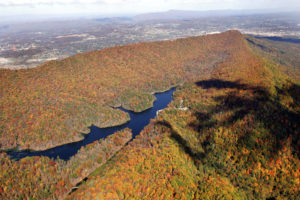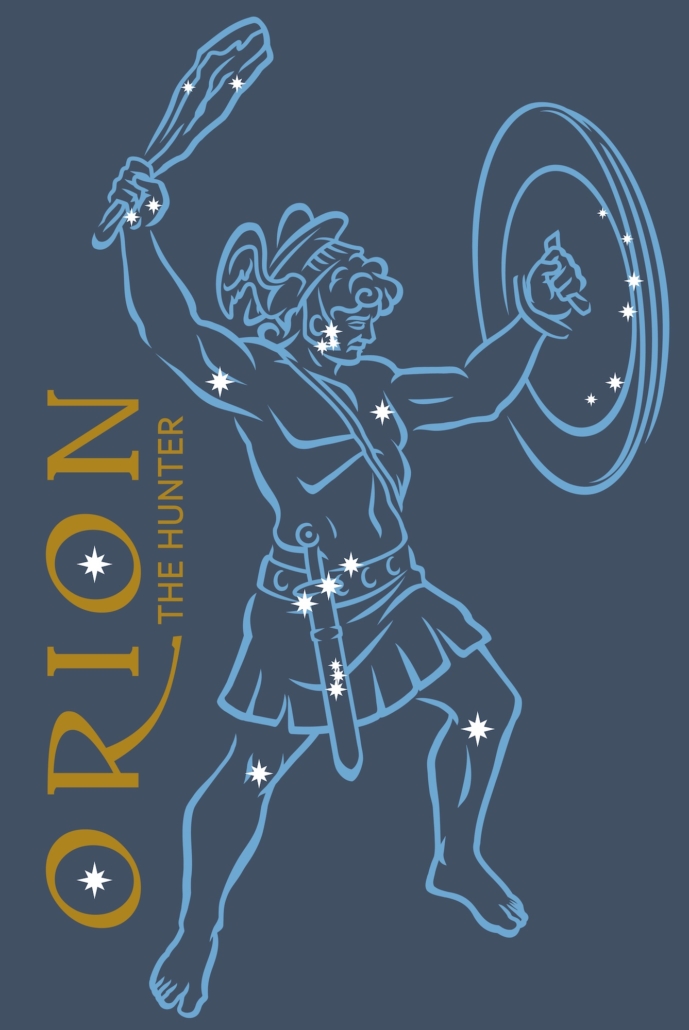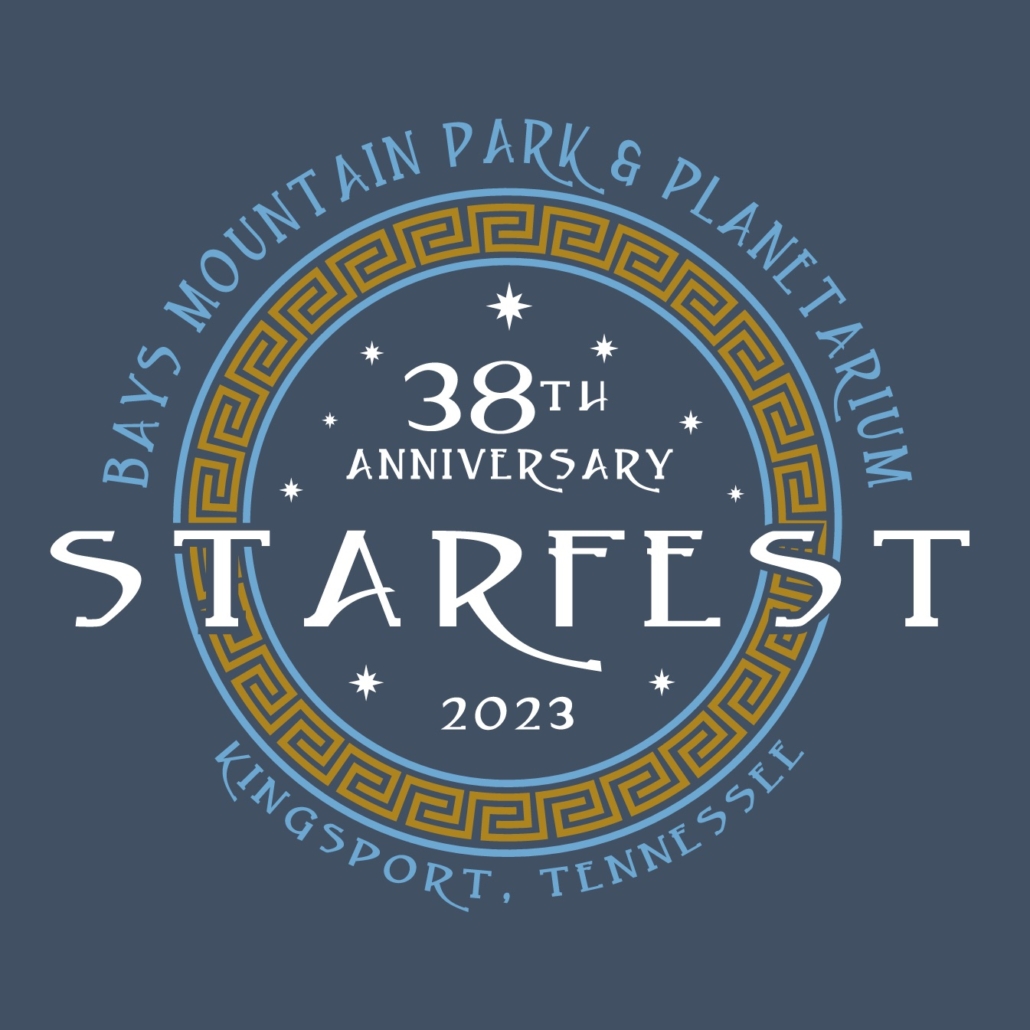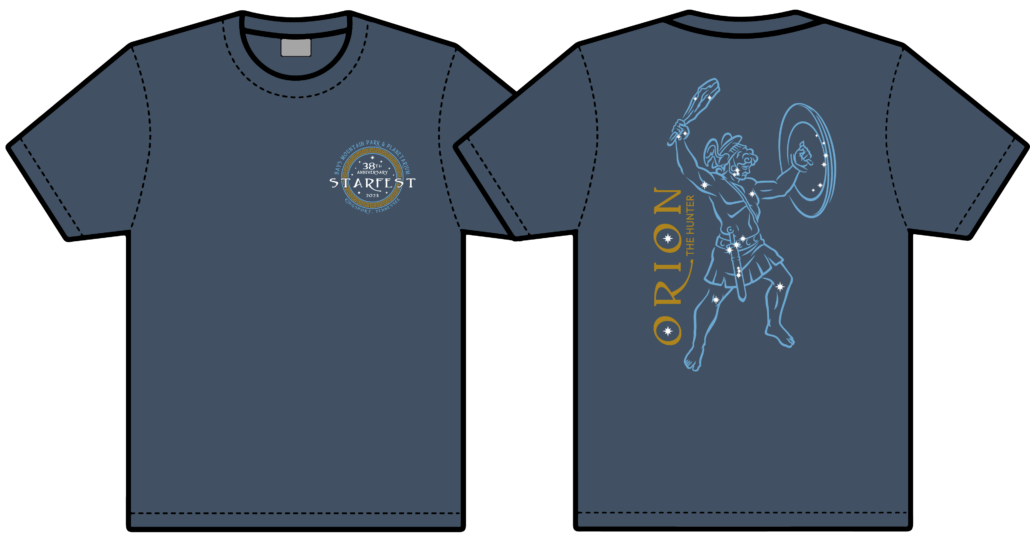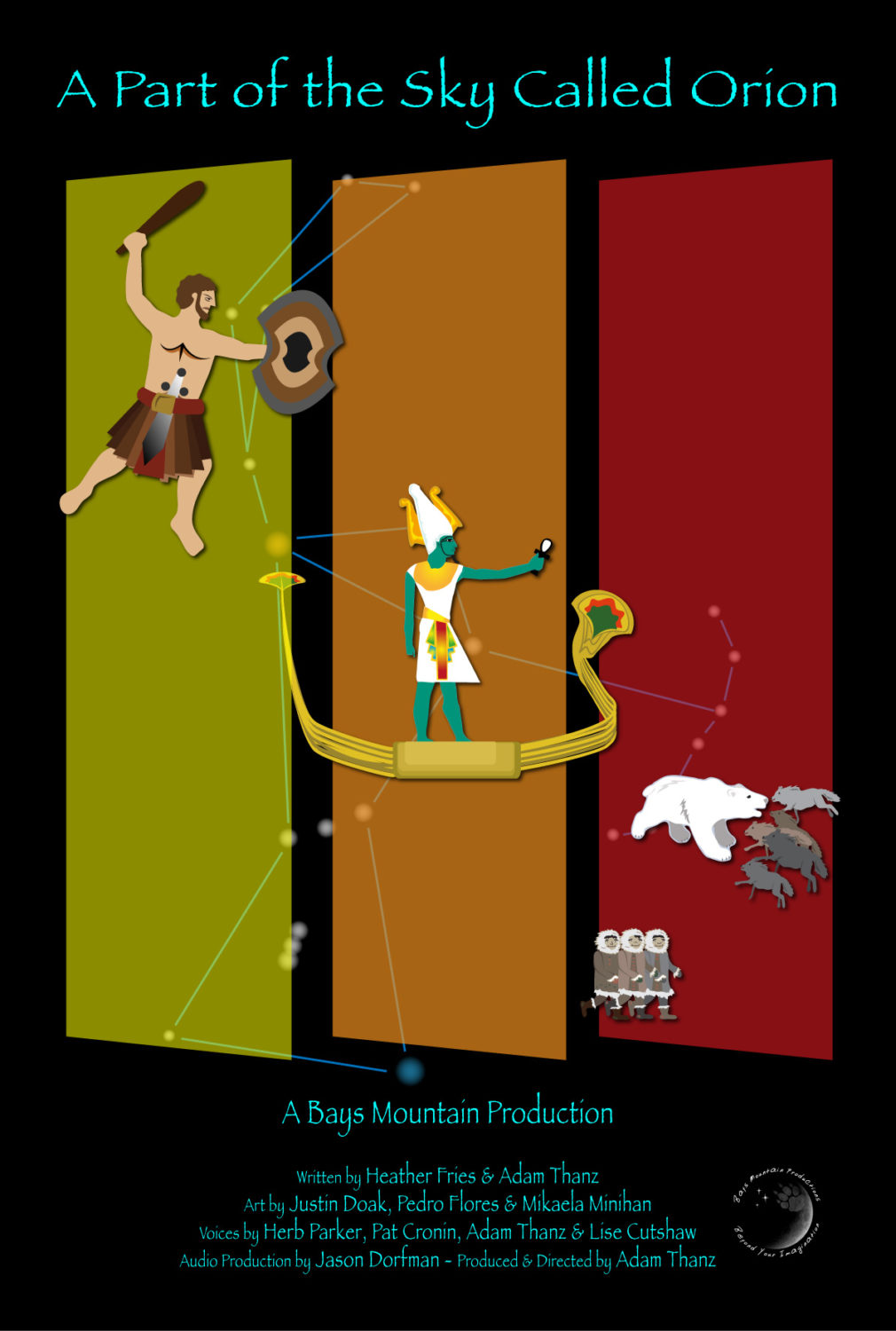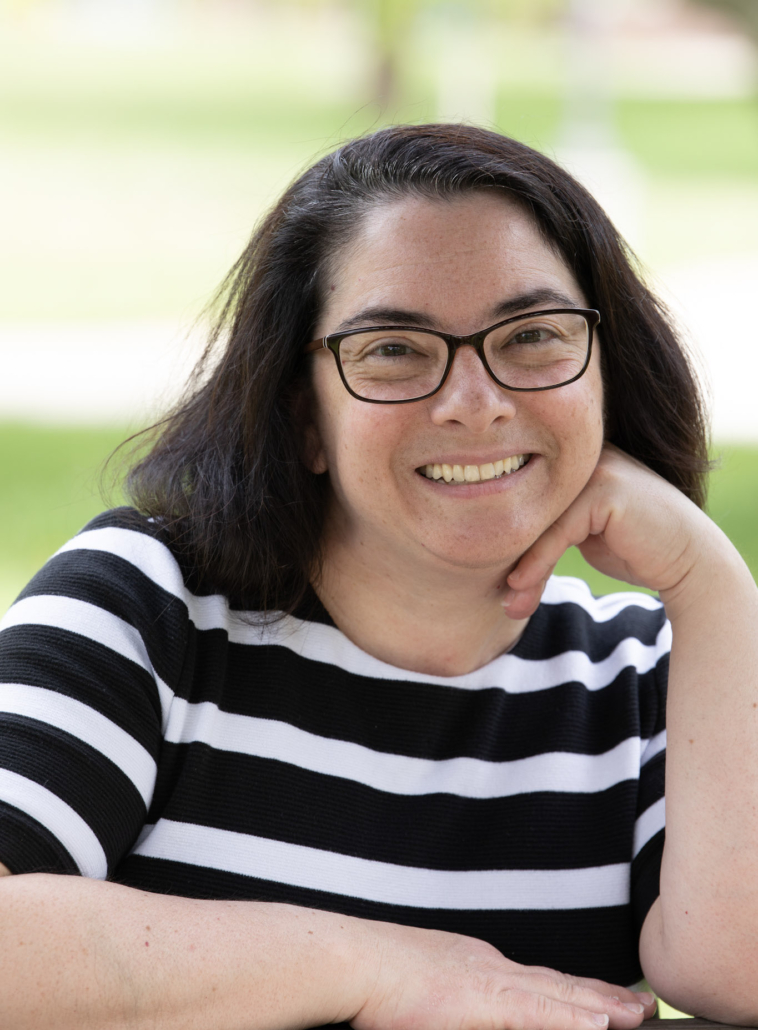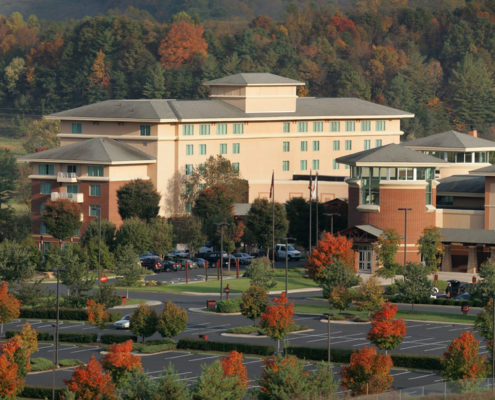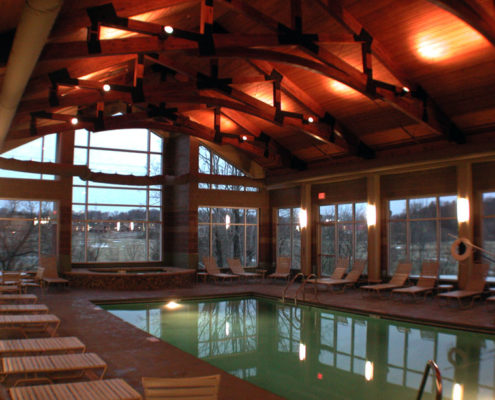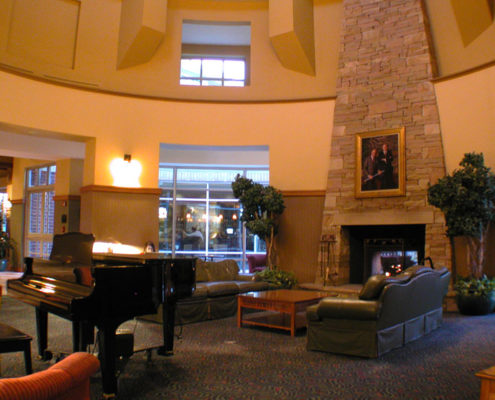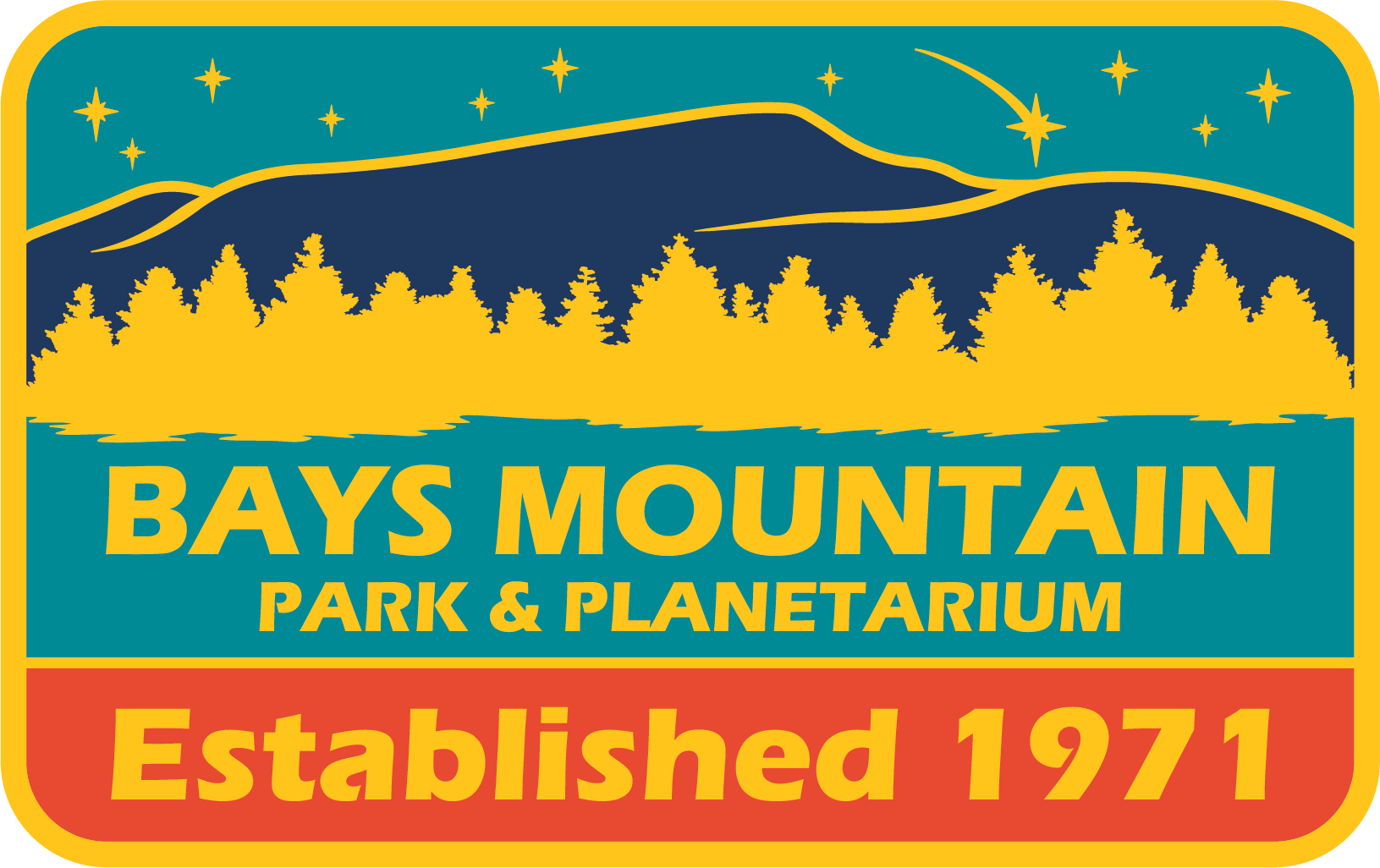Our Astronomy Club is open to all ages and experience levels!
If you enjoy astronomy, then the Bays Mountain Astronomy Club is for you! We invite you to attend one of our meetings and experience it first hand.
See the meetings tab for details for any particular meeting. To become a member, click here.
Just some of the benefits…
- Learning & Interaction with Fellow Members
- Monthly Newsletter
- Monthly Meetings
- Meetings are typically held on the first Friday of most months at the Bays Mountain Nature Center and are free to attend.
- StarFest – Our Annual Astronomical Convention / Star Gathering Event
- Every Fall, our club hosts this regional gathering of amateur astronomers from around the Southeastern United States. It’s an enjoyable, long weekend of talks, observing, food, and fun. Please see the “StarFest” tab for all the details.
- Astronomical League
- Full BMAC membership includes membership to the national organization of the Astronomical League. This opens many more benefits and observing programs as well as a quarterly journal. Visit their site for all the details.
- BMAC Youtube!
- The BMAC has a Youtube channel. Click here to see what’s on!
- BMAC Astronomy Knowledge Compendium Test!
- The BMAC invites club members to learn more about the basics of astronomy. The following link is a take-home, open-book test. There is no time limit on taking the test. Once you complete it, you will have a better understanding of astronomy and can enjoy more of our monthly meetings. BMAC members who complete it can turn it in to the planetarium director for grading. If you receive a 90% or better, you will receive your choice of a BMAC collectible. If you receive less than 90%, you are given the opportunity to correct your answers.
- Take the test!
Join the Club
Meetings
The Bays Mountain Astronomy Club holds regular meetings.
All are welcome to attend the club meetings. Each meeting is unique and will include an interesting keynote speaker that presents a topic of astronomical interest. All of these programs should be of great interest to the general public and are lots of fun. We hope to see you at a future meeting!
May 3, 2024 at 7 p.m.
Location – Bays Mountain Planetarium
Topic – Local students will present their science research projects.
June 7, 2024 at 7 p.m.
Location – Bays Mountain Planetarium
Topic – Eclipse stories from BMAC members.
August 2, 2024 at 7 p.m.
Location – TBD
Topic – TBA
September 6, 2024 at 7 p.m.
Location – TBD
Topic – TBA
October 3, 2024 at 7 p.m.
Location – TBD
Topic – TBA
December 6, 2024 at 7 p.m.
Location – TBD
Topic – TBA
February 7, 2025 at 7 p.m.
Location – TBD
Topic – TBA
March 7, 2025 at 7 p.m.
Location – TBA
Topic – TBA
Opportunities & Rules
Opportunities & Rules
There are endless learning opportunities while being a member of the astronomy club. Our members are more than happy to help. Topics can run from using a telescope and star chart, to learning the details of astrophotography, or understanding the basics of astronomy like Moon phases and seasons.
Volunteerism
This is not the same as being a member of the Bays Mountain Astronomy Club. Anyone of any age can be a member of the club.
If you want to do more and provide help with public events such as StarWatch or Astronomy Day and engage with the public, use City equipment, or be the club chair, then this is considered volunteerism. We really appreciate your desire to help out! But, this will require you to fill out the City’s volunteer form and visit with the Park’s Volunteer Coordinator for an orientation meeting. The form is simple and should only take a few minutes. Part of the form is a background check and there is NO COST to you for this. Please bring the completed form to a club meeting, mail in or bring it to the Park’s front desk in a sealed envelope. After the form is processed and accepted by the Park, the Volunteer Coordinator will then contact you to attend an orientation meeting. They will then contact the Planetarium Director about your status.
Please note, doing a singular effort during a year, like providing a presentation at a meeting or helping out during Astronomy Day or such, would not require you to fill out the form.
If you are younger than 16, then you won’t be able to “volunteer,” but we still want to offer the opportunity for you to learn directly from one of our volunteers or staff on astronomy, how to use a telescope and how to find celestial objects in the night sky. If this occurs during a StarWatch, you won’t be able to bring in your own equipment as we can’t exclude visitors from wanting to look through your instrument. But, you can be instructed and use the instrument the volunteer is using.
Rules
In order to enjoy the full benefits of being a member of the Bays Mountain Astronomy Club, like earning the opportunity to run a scope in one of our observatories or even help at a public event, one needs to understand that being a member is akin to volunteerism to Bays Mountain Park. As such, a member needs to be in good standing, of good character and doesn’t abuse this privilege.
The Park and the City of Kingsport is enforcing some long held basic, good behavior guidelines regarding volunteers. If a volunteer (that has successfully been accepted into the volunteer program) does not play well with others, then they will not be a part of the volunteer program. Again, it is a privilege, not a right, to be a member of the club and to volunteer.
Not to put a negative tone to this letter, it is important to establish guidelines that we can all work by. Here is a short list of unacceptable behaviors:
- Being rude and/or abusive to another member/public/staff person. This includes verbal, unspoken, online and physical methods. Abuse also includes micromanaging, passive/aggressive behavior, high type-A behavior and more.
- Theft.
- Damage to equipment/property through gross negligence or on purpose.
- Shirking responsibilities.
- Being intoxicated, even by the smallest amount, by alcohol or drugs.
This is not an absolute list, but it should get the point across.
StarFest
StarFest is the Bays Mountain Astronomy Club’s annual astronomical convention / star gathering held each Fall. Cradled in the heart of the Appalachians, it is three days and two nights of astronomical heaven!
During the day, our delegates enjoy many keynote speakers, planetarium programs, activities, solar viewing and the splendor of autumnal colors. The night brings more speakers, activities, night viewing and crisp, cool air. Attendance can ONLY be attained by pre-registration with payment. Sorry, to be fair to our registered delegates, NO walk-ins nor “visits.” Your one, low cost registration includes everything: access to all speakers, all activities, five scrumptious meals, free access to the Park’s public programming, the opportunity to sleep/camp on Park grounds at no additional cost AND a unique, commemorative T-shirt with custom artwork.
Initiated in 1984, the Bays Mountain StarFest is still one of the finest astronomy events in the nation.
If you would like to be added to the StarFest mailing list, please click here.
StarFest 2024 – November 1-3, 2024
[Registration will open in August – The special 2024 MeadowView Marriott hotel rate has been set. See link below to make your reservation.]
Notes for when registration opens:
Registration is through the CivicRec interface the City of Kingsport uses for all activities and rentals. If you already have a user account, just log in and click on the link below for the event to pay for registration and make your personalized choices like T-shirt size, vegetarian options, additional shirt orders, etc. If you are not in the system, you’ll set up a new user account with password. You’ll find StarFest in Ticketed Events under the BMP Astronomy / Observing divider within the Bays Mountain Park & Planetarium tab in the catalog. Please remember that you need to register each individual that is attending, even if they are a small child. Just add each person to your family user account in CivicRec and then add a new registration for each person to your cart and then check out. Please note: There are now three student/child discounted price points for registration! And, there is no service fee for registering online. The event is through the Bays Mountain Park Association, the non-profit support organization for the Park.
If you need to pay with a check, use the button link below for the printable page option. Again, please use a separate sheet for each person registering.
Also, though camping/sleeping at the Park is offered for StarFest 2024 delegates at no additional charge, you might want to stay at the closest and finest hotel in the Tri-Cities region. Remember, we do not have showers nor sleeping dorms at the Park. The Marriott MeadowView Conference Resort & Convention Center is a four-star facility only three miles away. A special rate has been established. Use the button link lower on this page in the “Sleeping Arrangements” section. If you like, there are five other hotels within a quarter mile of MeadowView.
The following information was from last year’s spectacular event. It should give you an idea of what the next StarFest will be like.
Bays Mountain StarFest 2023:
“Sky Tales – Telling the Stories of the Sky Through the World’s Cultures”
Greetings Everyone!
The 38th StarFest at Bays Mountain Park is soon upon us. Expect beautiful fall colors, cooler weather and lots of astronomy fun for this astronomical convention / star party. The event is hosted by the Bays Mountain Astronomy Club (BMAC) and the Bays Mountain Park Association. It is being held on November 3-5, 2023. It is run as a non-profit event, so the registration fee is as low as possible.
The theme of this year’s event is “Sky Tales – Telling the Stories of the Sky Through the World’s Cultures.” Each of our four keynote speakers will focus on ways different cultures interpreted the sky. We think you’ll really enjoy this year’s topic and speakers!
This year includes four distinctive keynote speakers; five great meals; door prizes; the ever popular swap shop; telescope viewing*; and the recently upgraded planetarium will be open.
In addition to all the StarFest activities, there are public programs and activities available at the park, such as the wildlife exhibits, planetarium shows, barge rides and plenty of trails to explore.
A unique facet of StarFest is a commemorative T-shirt with one-of-a-kind artwork that is included with each registration. Extra shirts can be pre-ordered.
This three-day long gathering is filled with great activities, but also makes sure there’s quality free time for you to explore the Park and enjoy the camaraderie of your fellow StarFesters. Attendance will be limited and registration must be received by the deadline, October 15, 2023, 11:59p. To be fair to our registered delegates, there are no walk-ins nor “visits.” Please register each person. The easiest way to register is through our CivicRec online portal. Click the button link above to register. Click on the other button link above if you need to use a check and mail in your registration.
Registration includes everything. There are three levels of student discounts available. The student discount is more generous this year to continue our long-term support of student involvement. If you cancel your registration by the October 15, 2023 deadline, you will receive a full refund. No refunds after that date.
Registration Rates:
- Registration: $195.00
- Student Rate (Grades ≥6) Full-time students: 30% discount: $136.50
- Young Astronomer (Grades K-5): 60% discount: $78.00
- Proto-Astronomer (Grades less than K): 80% discount: $39.00
Adam Thanz – StarFest 2023 Chair
*Note: We’ll have public observing sessions in the fall. Delegates wanting to share day or night observing with other delegates or the public do so at their discretion. Personal observing is always an option.
Keynote Speakers & Activities:
Twilight Soirée
What could be a better way to start your long weekend than enjoying a little tipple with your new and old astro-friends? We’ll be enjoying the craft of two local breweries with a beer and a hard cider. We’ll also have non-alcoholic beverages to share. Make sure you have an ID on hand.
Kayla Jenkins Jones – Public Historian – Murfreesboro, TN
Title:
“Chasing Shadows, Embracing Stories: Unraveling Solar Eclipse Narratives Worldwide”
Abstract:
Throughout history, astronomical events have been observed and interpreted by humans to help explain and understand the world around them. Being such a dramatic event, solar eclipses have historically been associated with ill omens and angry gods since the days of the first civilizations. Across the globe, ruling powers relied on their astronomers to accurately predict eclipses for social, political, and religious reasons. We’ll explore the history of solar eclipses in the written record, from ancient China, the Greek and Roman world, the Ottoman Empire, Medieval Europe, and beyond, to learn more about how our ancestors experienced and reacted to a day of black sun. Responses to historical eclipse events will be unpacked and placed into cultural context. Finally, we will look at how our historical understanding of solar eclipses still has lasting effects on the public’s understanding today.
Bio:
Kayla J. Jones is a lifelong learner and lover of all things interesting. She is a Public Historian with a background in physics and astronomy that began at Bays Mountain Park and Planetarium. After receiving her B.S. in History from East Tennessee State University in 2019, she went on to pursue her master’s degree at Middle Tennessee State University in the fall of 2021, and recently graduated with honors in August of this year. Her research interests include 20th century American social movements, work and labor history, scientific and environmental history, and cultural memory studies. Currently, Kayla is the program coordinator for the Tennessee Campus Democracy Network, a non-profit organization that promotes nonpartisan civic learning and engagement on campuses throughout the state to inspire students to become more involved in local, state, and national elections.
Paul Curnow – Astronomy Lecturer, Adelaide Planetarium – South Australia
Title:
“Night Skies of Aboriginal Australia”
Abstract:
Aboriginal Australians have been looking at the night sky for tens of thousands of years. This connection with the night sky represents some of the earliest ponderings about the cosmos and was an effort to explain natural phenomena. Moreover, the stars were used for navigation, education, as a seasonal guide to the availability of foods, in addition to reinforcing cultural identity and spirituality. Paul ‘Starman’ Curnow, astronomy lecturer at the Adelaide Planetarium in South Australia will talk about some of the Aboriginal Dreaming stories; their ‘dark pattern’ shapes, such as the ‘celestial emu;’ the names they gave to the stars and the differences between the way the sky is viewed in comparison to the classical 88-constellations used by contemporary astronomers.
Bio:
After 31-years, Paul Curnow [B.Ed] is South Australia’s longest serving planetarium lecturer. He has been a member of the Field Geology Club of South Australia since 1992. In 2002, he served as a southern sky specialist for visiting U.S. and British astronomers who were in Australia for the total solar eclipse. After three decades of research, he is regarded as one of the world’s leading authorities on Australian Aboriginal night sky knowledge; and in 2004, he worked in conjunction with the Lake Erie Nature and Science Center Planetarium in Ohio, on the creation of a show that features Indigenous Australian stories of the night sky. Moreover, from 2018-2022, he has served as a consultant on Indigenous Astronomy for the Australian Space Agency. In addition, Paul runs several popular courses for the public that focus on the constellations, planetary astronomy, meteoritics, historical astronomy and ethnoastronomy, which primarily deals with how the night sky is seen by non-western cultures. He appeared as the keynote speaker at the inaugural 2010 Lake Tyrrell Star Party in Sea Lake, Victoria and in 2011 was a special guest speaker at the Carter Observatory in Wellington, New Zealand. Since 2012 Paul has taken the role of Lecturer for the ‘Astronomy & the Universe’ course (EDUC2066); and between 2019-2021 for ‘Science’ (EDUC 2030) for the School of Education at the University of South Australia. Moreover, since 2021 he has been a member of the Andy Thomas Space Foundation Education Advisory Committee. Paul appears regularly in the media and has authored over 50 articles on astronomy.
Planetarium Program
“A Part of the Sky Called Orion”
This program looks at how three different ancient cultures looked at the same part of the sky we know as the constellation Orion. We focus on the Greek, Egyptian and Inupiaq cultures along with their different star stories and images using the night sky. It is thoroughly enjoyed by children and adults and is a great program to explore the heavens. The program is followed by a tour of the current night sky using our exceptional Carl Zeiss ZKP-4 star projector.
Panel Discussion
This presentation will be a guided discussion with our keynote speakers. Its purpose is to give insight into the people behind the professional titles. It will be quite interesting to see how each responds to the questions posed!
Woodrow W. Grizzle III – Writer, Journalist and Designer – Southwest Virginia
Title:
“Heaven on Earth: Star Tales You Can Touch”
Abstract:
Star lore can tie us to the heavens in unexpected ways. The star stories of the Ancient Greeks, for example, often relate to real places and moments that you can experience to this day. Relax as ethereal images and Woodrow’s storytelling transport you to Ancient Hellas in this virtual tour of both earth and sky.
Bio:
Woodrow W. Grizzle III is a writer, journalist, and designer living in Southwest Virginia. He started in the planetarium field at Bays Mountain in 2004 before going on to direct planetaria in South Florida and the Outer Banks. Woodrow has written many books and articles about astronomy and archaeoastronomy and was the technical advisor and curriculum writer for an Emmy® award-winning educational television show. Woodrow is the current editor and designer of Southern Skies, the Journal of the Southeastern Planetarium Association.
Amie Gallagher – Planetarium Director, Raritan Valley Community College – Branchburg, NJ
Title:
“Exploring the Underground Railroad Using Codes”
Abstract:
Even a secretive path needs guides. Sometimes those were people. Sometimes those were songs. Sometimes those were quilts. Sometimes, it was the sky above. But how do you share information in an open, yet secretive way? We’ll explore some of the codes that may have been used during the mid-1800s to help enslaved people travel from South to North, and hopefully to freedom.
Bio:
Amie Gallagher is the Planetarium Director at Raritan Valley Community College. She has a Master of Science in Teaching from Fordham University. She was the Astronomy Educator and Programming Coordinator at the American Museum of Natural History’s Hayden Planetarium from 1992-2000. She taught 5th grade from 2000-2001 before returning to her passion: planetariums. She has coordinated the astronomy outreach efforts of the Planetarium at Raritan Valley Community College since 2001, and became show presenter, gift shop buyer, phone answerer, student worker trainer, ticket seller and “other duties as needed” staff in 2003. Shifting to “Director” in 2013 added a few more tasks to her to-do list.
Amie has been an Astronomy Education consultant to planetariums and book and magazine publishers since 1992, fact-checking texts, articles and presenting astronomy workshops to thousands of children and adults around the country. Amie and her husband live in central New Jersey. Their two kids are out of the house, but they are not empty-nesters since the two dogs are still with them. In addition to hearing about which planet is someone’s favorite, Amie enjoys reading, going to historical places, watching ghost shows on TV and playing Wordle and Candy Crush.
Meals
What’s StarFest without great food? [Dare we call our event StarFeast?] We think you’ll be excited about our menu. Please pay attention if you want the vegetarian option for any specific meal in case you don’t want the main dish.
Friday Dinner
Roast Beef au Jus – Vegetarian: Eggplant Parmesan
Mixed Green Tossed Salad, Real Mashed Potatoes, Rolls, Banana Pudding, Sweet & Unsweet Iced Tea, Coffee
Saturday Breakfast
Big Tennessee Country Breakfast with Egg, Cheese & Spinach Casserole – Vegetarian: Same as breakfast
Fresh Fruit, Bacon, Ham, Hash Browns, Biscuit, Gravy (no meat), Coffee, Milk, OJ
Saturday Lunch
Delicious deli sandwiches on freshly baked authentic New York sesame, whole wheat and plain bagels with Boar’s Head brand roast beef, turkey, or black forest ham. All with cheese, tomatoes and lettuce. – Vegetarian: vegetable cream cheese spread on a bagel, topped with thinly sliced cucumbers lettuce and tomato
Antipasto Salad, Garden Salad, Special Cupcakes from Little Cake Bakery (Blackberry, Carrot Cake & Red Velvet), Sweet & Unsweet Iced Tea
Saturday Dinner
Half Rack Ribs – Vegetarian: Grilled Stuffed Portobello Mushroom
Greek Bow-Tie Pasta Salad with Dun-Dried Tomatoes, Black Olives & Feta, Jonathan’s Smokehouse Beans, Rolls, Chocolate Brownie, Sweet & Unsweet Iced Tea, Coffee
Sunday Breakfast
Big Tennessee Country Breakfast with Scrambled Eggs – Vegetarian: Egg, Cheese & Potato Casserole
Fresh Fruit, Sausage, Ham, Hash Brown Patties, Biscuit, Gravy (no meat), Coffee, Milk, OJ
Sleeping Arrangements
If you want to sleep within the Park grounds (at no additional charge!), you can bring a small camper / popup, sleep in your car, pitch a tent, use a hammock or sleep in the Nature Center. If you bring a camper, you can set up in the new, large lot just above the observatories. If you want to use a generator, please set up in the overflow parking by the Maintenance Building up past the Farmstead Museum. If you want to pitch a tent or use a hammock, a great area is uphill, back behind the Zip Line up towards the Maintenance Building. This space will be out of the way of the general public and more secluded. Please, do not pitch a tent anywhere near the parking lots nor observatory. Also make sure tree damage does not occur. StarFest is the only event of the entire year in which we allow non-primitive camping. The Park does NOT have showers and camp fires are NOT allowed in the Park.
For those wanting a little more comfiness in the evening, we have arranged for a special rate at the Marriott MeadowView Resort. This is the closest and also the most luxurious amenity in the Tri-Cities region. It is a four+ star facility. Use the button link below or call the MeadowView Hotel (423-578-6600) and ask for the StarFest rate. This $139.00 + tax rate is guaranteed up to October 13, 2024*. There are also five other hotels within a quarter mile of MeadowView for more options.
* It may not be clear upon reserving your room, but I have been assured by MeadowView that you can cancel up to 2 days in advance.
Pets
If you have a dog, we are puppy-friendly, but they must be on a leash at all times, cleaned up after and not allowed near any of the animal habitats.
Public Park Activities
As always, the schedule allows for many opportunities to enjoy park programming. Note, with your StarFest badge, you can receive free, on November 3-5, 2023, entrance to the Park and passes to planetarium shows, nature programs and barge rides. Yes, you need your stinkin’ badge! Check the Park’s scheduling calendar for details.
Barge rides are a 45 min. tour of the lake and its natural habitats. Nature programs are different for each time provided, so check the Park’s scheduling calendar for details.
Please note that if your family arrives with you, they MUST be fully registered if they also want to partake of any of the meals or attend any of the StarFest presentations or activities.
The Bays Mountain Astronomy Club and Bays Mountain Park Association look forward to seeing you for StarFest 2023! Please contact me if you have any questions.
Adam Thanz; StarFest Chair; 423-224-2532
